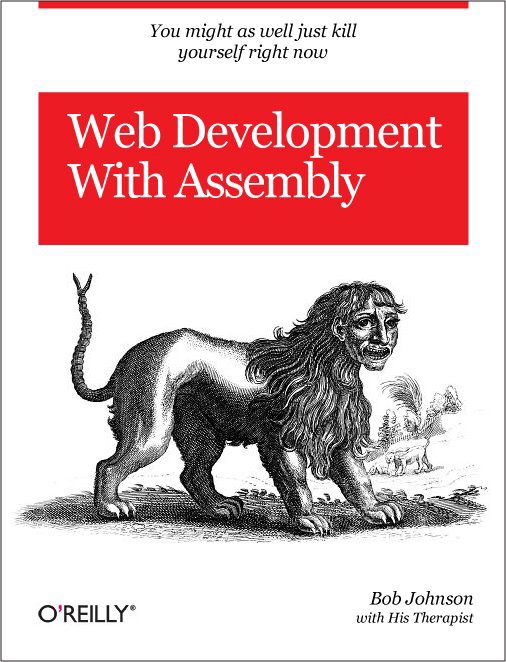If you want to find solutions online, stop using Google.
Sometimes I post stuff to my blog about things that I could not find a satisfying solution to and where I had to figure one out myself. I post those things because I want it to be discoverable by the next person who is searching for it.
I did a quick test, and my posts don’t show up anywhere on Google. I can find them via Kagi, DuckDuckGo, and even Bing. But Google doesn’t show my stuff, even when hitting specific keywords that only my post talks about. And if my site even shows up, it is only about +6 months after I posted.
Even tried their search console thing, it doesn’t report any issues with my site. So it must be the lack of ads, cookies, and AI generated content which makes Google suspicious of it.
So, If you are an engineer looking for solutions to your problems online, just stop using Google. It’s become so utterly useless, it’s ridiculous. Of course you will miss all the cool AI features and scam ads, but there’s always some drawbacks.
_Reposting my post from Mastodon yesterday, it felt relevant. https://infosec.exchange/@hertg/112989703628721677_
So it must be the lack of ads, cookies, and AI generated content which makes Google suspicious of it
If your site isn’t integrated with Google’s Adsense infrastructure it is immediately at a disadvantage as Google won’t scan your site anywhere near as often, and even when it does will put the results way below anything else that does. It’s not that it finds your site suspicious, it is simply incentivized to really look hard at all the other sites paying for service.
Google used to better than ddg like a year ago, now it’s almost completely unusable for development and I find myself going back to ddg and actually finding what I want instead of some unrelated nonsense, ads and LLM output crap
I gave up on Google over a decade ago - maybe two decades by now. Way back when I was using Yahoo, Ask Jeeves, Astalavista, and others. When Google came, it somehow beat them all at finding exactly what I was looking for.
Later they stopped searching for the exact words you typed, but it was okay because adding a plus in front of terms, or quotes around phrases, still let you search exact things. The combination of both systems was very powerful.
And then plus and quotes stopped working. Boolean operators stopped working. Their documentation still says they work, but they don’t.
Now, it seems like your input is used only as a general guideline to pick whatever popular search is closest to what it thinks you meant. Exact words you typed are often nowhere in the page, not even in the source.
I only search Google maps now, and occasionally Google translate.

It burns

webassembly
Adding to my library
Here’s my collection: https://imgur.com/a/kAB0p
Looks like this website has a far larger collection: https://boyter.org/2016/04/collection-orly-book-covers/
perhaps javascript -> rust?
Book for new programmers: How to properly prompt ChatGPT to solve errors.
Or dont read the book and paste your question in chatGPT
Better yet, have your LLM of choice read the book first.
They don’t really have a long term memory, so it’s probably not going to help.
If we’re speaking of transformer models like ChatGPT, BERT or whatever: They don’t have memory at all.
The closest thing that resembles memory is the accepted length of the input sequence combined with the attention mechanism. (If left unmodified though, this will lead to a quadratic increase in computation time the longer that sequence becomes.) And since the attention weights are a learned property, it is in practise probable that earlier tokens of the input sequence get basically ignored the further they lie “in the past”, as they usually do not contribute much to the current context.
“In the past”: Transformers technically “see” the whole input sequence at once. But they are equipped with positional encoding which incorporates spatial and/or temporal ordering into the input sequence (e.g., position of words in a sentence). That way they can model sequential relationships as those found in natural language (sentences), videos, movement trajectories and other kinds of contextually coherent sequences.

How would you use that for debugging?
(Sry I’m too cheap to go and buy the book)
My best guess is that in some configurations it raises SIGSEGV and then dumps core. Then, you use a debugger to analyse the core dump. But then again you could also set a breakpoint, or if you absolutely want a core dump, use abort() and configure SIGABRT to produce a core dump.

.
.
.
.
.
.
.
̇̇̇̇̇̇̇̇̇̇̇̇̇̇̇̇̇̇̇̇̇̇̇̇̇̇̇̇̇̇̇̇̇̇̇̇̇̇̇̇̇̇̇̇̇̇̇̇̇̇̇̇̇̇̇̇̇̇̇̇̇̇̇̇ ̇̇̇̇̇̇̇̇̇̇̇̇̇̇̇̇̇̇̇̇̇̇̇̇̇̇̇̇̇̇̇̇̇̇̇̇̇̇̇̇̇̇̇̇̇̇̇̇̇̇̇̇̇̇̇̇̇̇̇̇̇̇̇̇ ̇̇̇̇̇̇̇̇̇̇̇̇̇̇̇̇̇̇̇̇̇̇̇̇̇̇̇̇̇̇̇̇̇̇̇̇̇̇̇̇̇̇̇̇̇̇̇̇̇̇̇̇̇̇̇̇̇̇̇̇̇̇̇̇ ̇̇̇̇̇̇̇̇̇̇̇̇̇̇̇̇̇̇̇̇̇̇̇̇̇̇̇̇̇̇̇̇̇̇̇̇̇̇̇̇̇̇̇̇̇̇̇̇̇̇̇̇̇̇̇̇̇̇̇̇̇̇̇̇ ̇̇̇̇̇̇̇̇̇̇̇̇̇̇̇̇̇̇̇̇̇̇̇̇̇̇̇̇̇̇̇̇̇̇̇̇̇̇̇̇̇̇̇̇̇̇̇̇̇̇̇̇̇̇̇̇̇̇̇̇̇̇̇̇ ̇̇̇̇̇̇̇̇̇̇̇̇̇̇̇̇̇̇̇̇̇̇̇̇̇̇̇̇̇̇̇̇̇̇̇̇̇̇̇̇̇̇̇̇̇̇̇̇̇̇̇̇̇̇̇̇̇̇̇̇̇̇̇̇ ̇̇̇̇̇̇̇̇̇̇̇̃̇̇̇̇̇̇̇̇̇̇̇̇̇̇̇̇̇̇̇̇̇̇̇̇̇̇̇̇̇̇̇̇̇̇̇̇̇̇̇̇̇̇̇̇̇̇̇̇̇̇̇̇ ̇̇̇̇̇̇̇̇̇̇̃̃̃̇̇̇̇̇̇̇̇̇̇̇̇̇̇̇̇̇̇̇̇̇̇̇̇̇̇̇̇̇̇̇̇̇̇̇̇̇̇̇̇̇̇̇̇̇̇̇̇̇̇̇ ̇̇̇̇̇̇̇̃̃̃̃̃̃̃̃̇̇̇̇̇̇̇̇̇̇̇̇̇̇̇̇̇̇̇̇̇̇̇̇̇̇̇̇̇̇̇̇̇̇̇̇̇̇̇̇̇̇̇̇̇̇̇̇̇ ̇̇̇̇̇̇̇̇̇̇̃̃̃̃̃̃̃̇̇̇̇̇̇̇̇̇̇̇̇̇̇̇̇̇̇̇̇̇̇̇̇̇̇̇̇̇̇̇̇̇̇̇̇̇̇̇̇̇̇̇̇̇̇̇ ̇̇̇̇̇̇̇̇̇̇̇̇̃̃̃̃̃̃̇̇̇̇̇̇̇̇̇̇̇̇̇̇̇̇̇̇̇̇̇̇̇̇̇̇̇̇̇̇̇̇̇̇̇̇̇̇̇̇̇̇̇̇̇̇ ̇̇̇̇̇̇̇̇̇̇̇̇̇̃̃̃̃̃̃̇̇̇̇̇̇̇̇̇̇̇̇̇̇̇̇̇̇̇̇̇̇̇̇̇̇̇̇̇̇̇̇̇̇̇̇̇̇̇̇̇̇̇̇̇ ̇̇̇̇̇̇̇̇̇̇̇̇̇̃̃̃̃̃̃̃̇̇̇̇̇̇̇̇̇̇̇̇̇̇̇̇̇̇̇̇̇̇̇̇̃̃̇̇̇̇̇̇̇̇̇̇̇̇̇̇̇̇̇̇ ̇̇̇̇̇̇̇̇̇̇̇̇̇̇̃̃̃̃̃̃̃̇̇̇̇̇̇̇̇̇̇̇̇̇̇̇̇̇̇̇̇̇̇̇̃̃̃̇̇̇̇̇̇̇̇̇̇̇̇̇̇̇̇̇ ̇̇̇̇̇̇̇̇̇̇̇̇̇̇̇̇̃̃̃̃̃̇̇̇̇̇̇̇̇̇̇̇̇̇̇̇̇̇̇̇̇̇̇̇̇̃̃̃̃̇̇̇̇̇̇̇̇̇̇̇̇̇̇̇ ̇̇̇̇̇̇̇̇̇̇̇̇̇̇̇̇̃̃̃̃̃̃̇̇̇̇̇̇̇̇̇̇̇̃̃̃̃̃̃̃̃̇̇̇̇̃̃̃̃̃̇̇̇̇̇̃̇̇̇̇̇̇̇̇ ̇̇̇̇̇̇̇̇̇̇̇̇̇̇̇̇̇̃̃̃̃̃̃̇̇̇̇̇̇̇̇̃̃̃̃̃̃̃̃̃̃̃̃̇̇̇̃̃̃̃̇̇̃̇̇̃̇̇̇̇̇̇̇̇ ̇̇̇̇̇̇̇̇̇̇̇̇̇̇̇̇̇̃̃̃̃̃̃̇̇̇̇̇̇̇̇̃̃̃̃̃̃̃̃̃̃̃̃̃̃̇̃̃̃̃̃̃̃̇̇̃̇̇̇̇̇̇̇̇ ̇̇̇̇̇̇̇̇̇̇̇̇̇̇̇̇̇̇̃̃̃̃̃̃̇̇̇̇̇̇̇̇̇̇̇̃̃̃̃̃̃̃̃̃̃̃̃̃̃̃̃̃̃̇̃̃̇̇̇̇̇̇̇̇ ̇̇̇̇̇̇̇̇̇̇̇̇̇̇̇̇̇̇̃̃̃̃̃̃̃̇̇̇̇̇̇̇̇̇̇̇̃̃̃̃̃̃̃̃̃̃̃̃̃̃̃̃̃̃̃̃̇̇̇̇̇̇̇̇ ̇̇̇̇̇̇̇̇̇̇̇̇̇̇̇̇̇̇̃̃̃̃̃̃̃̇̇̇̇̇̇̇̇̇̇̇̇̃̃̃̃̃̃̃̃̃̃̃̃̃̃̃̃̃̃̃̇̇̇̇̇̇̇̇ ̇̇̇̇̇̇̇̇̇̇̇̇̇̇̇̇̇̇̃̃̃̃̃̃̃̇̇̇̇̇̇̇̇̇̇̇̇̃̃̃̃̃̃̃̃̃̃̃̃̃̃̃̃̃̃̃̇̇̇̇̇̇̇̇ ̇̇̇̇̇̇̇̇̇̇̇̇̇̇̇̇̇̇̃̃̃̃̇̃̃̃̇̇̇̇̇̇̇̇̇̃̃̃̃̃̃̃̃̃̃̃̃̃̃̃̃̃̃̃̃̇̇̇̇̇̇̇̇̇ ̇̇̇̇̇̇̇̇̇̇̇̇̇̇̇̇̇̇̃̃̃̃̇̇̃̃̇̇̇̇̇̇̇̇̇̃̃̃̃̃̃̃̃̃̃̃̃̃̃̃̃̃̃̃̃̇̇̇̇̇̇̇̇̇ ̇̇̇̇̇̇̇̇̇̇̃̇̃̇̇̇̇̃̃̃̃̃̃̇̇̇̇̇̇̇̇̇̇̇̃̃̃̃̃̃̃̃̃̃̃̃̃̃̃̃̃̃̃̃̃̃̇̇̇̇̇̇̇̇ ̇̇̇̇̇̇̇̇̇̇̃̃̃̃̇̇̇̃̃̃̃̃̃̇̇̇̇̇̇̇̇̇̇̃̃̃̃̃̃̃̃̃̃̃̃̃̃̃̃̃̃̃̃̃̃̃̇̇̇̇̇̇̇̇ ̇̇̇̇̇̇̇̇̇̇̃̃̃̃̃̃̃̃̃̃̃̃̃̇̇̇̇̇̇̇̇̇̇̃̃̃̃̃̃̃̃̃̃̃̃̃̃̃̃̃̃̃̃̃̃̃̇̇̇̇̇̇̇̇ ̇̇̇̇̇̇̇̇̇̇̃̃̃̃̃̃̃̃̃̃̃̇̇̇̇̇̇̇̇̇̇̇̃̃̃̃̃̃̃̃̃̃̃̃̃̃̃̃̃̃̃̃̃̃̃̃̇̇̇̇̇̇̇̇ ̇̇̇̇̇̇̇̇̇̇̇̃̃̃̃̃̃̃̃̃̃̇̇̇̇̇̇̇̇̇̇̇̃̃̃̃̃̃̃̃̃̃̃̃̃̃̃̃̃̃̃̃̃̃̃̇̇̇̇̇̇̇̇̇ ̇̇̇̇̇̇̇̇̇̇̇̃̃̃̃̃̃̃̃̃̃̇̇̇̇̇̇̇̇̇̇̇̃̃̃̃̃̃̃̃̃̃̃̇̇̇̃̃̃̃̃̃̃̃̃̇̇̇̇̇̇̇̇̇ ̇̇̇̇̇̇̇̇̇̇̇̇̃̃̃̃̃̃̃̃̃̇̇̇̇̇̇̇̇̇̇̃̃̃̃̃̃̃̃̃̃̃̇̇̇̇̇̃̃̃̃̃̃̃̃̇̇̇̇̃̇̇̇̇ ̇̇̇̇̇̃̃̇̇̇̇̇̃̃̃̃̃̃̃̃̃̇̇̇̇̇̇̇̇̇̇̃̃̃̃̃̃̃̃̃̃̇̇̇̇̇̃̃̃̃̃̃̃̃̃̇̇̃̃̃̇̇̇̇ ̇̇̇̇̇̇̃̃̃̇̇̇̇̃̃̃̃̃̃̃̃̃̇̇̇̇̇̇̇̇̃̃̃̃̃̃̃̃̃̃̃̇̇̇̇̃̃̃̃̃̃̃̃̃̃̇̃̃̃̇̇̇̇̇ ̇̇̇̇̇̇̇̃̃̃̇̇̇̇̃̃̃̃̃̇̇̇̇̇̇̇̇̇̇̇̃̃̃̃̃̃̃̃̃̃̇̇̇̇̇̃̃̃̃̃̃̃̃̃̃̃̃̃̇̇̇̇̇̇ ̇̇̇̇̇̇̇̇̃̃̃̇̇̇̃̃̃̃̇̇̇̇̇̇̇̇̇̇̇̇̃̃̃̃̃̃̃̃̃̃̇̇̇̇̃̃̃̃̃̃̃̃̃̃̃̃̃̃̇̇̇̇̇̇ ̇̇̇̇̇̇̇̇̃̃̃̃̇̇̃̃̃̃̇̇̇̇̇̇̇̇̇̇̇̇̃̃̃̃̃̃̃̃̃̃̇̇̇̇̃̃̃̃̃̃̃̃̃̃̃̃̃̇̇̇̇̇̇̇ ̇̇̇̇̇̇̇̇̇̃̃̃̃̃̃̃̃̇̇̇̇̇̇̇̇̇̇̇̇̇̃̃̃̃̃̃̃̃̃̇̇̇̇̃̃̃̃̃̃̃̃̃̃̃̃̃̇̇̇̇̇̇̇̇ ̇̇̇̇̇̇̇̇̇̃̃̃̃̃̃̃̃̇̇̇̇̇̇̇̇̇̇̇̇̇̃̃̃̃̃̃̃̃̃̇̇̇̇̃̃̃̃̃̃̃̃̃̃̃̃̇̇̇̇̇̇̇̇̇ ̇̇̇̇̇̇̇̇̇̇̃̃̃̃̃̃̃̇̇̇̇̇̇̇̇̇̇̇̇̇̇̃̃̃̃̃̃̃̃̇̇̇̇̃̃̃̃̃̃̃̃̃̃̃̃̇̇̇̇̇̇̇̇̇ ̇̇̇̇̇̇̇̇̇̇̃̃̃̃̃̃̃̇̇̇̇̇̇̇̇̇̇̇̇̇̇̃̃̃̃̃̃̃̃̇̇̇̇̃̃̃̃̃̃̃̃̃̃̃̇̇̇̇̇̇̇̇̇̇ ̇̇̇̇̇̇̇̇̇̇̃̃̃̃̃̃̃̇̇̇̇̇̇̇̇̇̇̇̇̇̃̃̃̃̃̃̃̃̃̇̇̇̇̃̃̃̃̃̃̃̃̃̃̃̇̇̇̇̇̇̇̇̇̇ ̇̇̇̇̇̇̇̇̇̇̇̃̃̃̃̃̃̇̇̇̇̇̇̇̇̇̇̇̇̇̃̃̃̃̃̃̃̃̃̇̇̇̇̃̃̃̃̃̇̇̃̃̃̃̇̇̇̇̇̇̇̇̇̇ ̇̇̇̇̇̇̇̇̇̇̇̃̃̃̃̃̃̇̇̇̇̇̇̇̇̇̇̇̇̇̃̃̃̃̃̃̃̃̃̇̇̇̇̃̃̃̃̇̇̇̃̃̇̃̇̇̇̇̇̇̇̇̇̇ ̇̇̇̇̇̇̇̇̇̇̇̃̃̃̃̃̃̇̇̇̇̇̇̇̇̇̇̇̇̃̃̃̃̃̃̃̃̃̃̇̇̇̇̃̃̃̃̇̇̃̇̇̇̇̇̇̇̇̇̇̇̇̇̇ ̇̇̇̇̇̇̇̇̇̇̇̃̃̃̃̃̃̃̇̃̇̇̇̇̇̇̇̇̇̃̃̃̃̃̃̃̃̃̃̇̇̇̇̇̃̃̃̃̃̃̇̇̇̇̇̇̇̇̇̇̇̇̇̇ ̇̇̇̇̇̇̇̇̇̇̇̇̃̃̃̃̃̃̃̃̇̇̇̇̇̇̇̇̃̃̃̃̃̃̃̃̃̇̃̇̇̇̇̇̃̃̃̃̃̇̇̇̇̇̇̇̇̇̇̇̇̇̇̇ ̇̇̇̇̇̇̇̇̇̇̇̇̃̃̃̃̃̃̃̃̇̇̇̃̃̃̃̃̃̃̃̃̃̃̃̃̇̇̇̇̇̇̇̇̃̃̃̃̇̇̇̇̇̇̇̇̇̇̇̇̇̇̇̇ ̇̇̇̇̇̇̇̇̇̇̇̇̃̃̃̃̃̃̃̃̃̇̇̃̃̃̃̃̃̃̃̃̃̃̃̃̇̇̇̇̇̇̇̇̃̃̃̃̇̇̇̇̇̇̇̇̇̇̇̇̇̇̇̇ ̇̇̇̇̇̇̇̇̇̇̇̇̇̃̃̃̃̃̃̃̃̃̇̇̃̃̃̃̃̃̃̃̃̃̃̃̇̇̇̇̇̇̇̇̃̃̃̇̇̇̇̇̇̇̇̇̇̇̇̇̇̇̇̇ ̇̇̇̇̇̇̇̇̇̇̇̇̇̃̃̃̃̃̃̃̃̃̃̇̃̃̃̃̃̃̃̃̃̃̃̃̇̇̇̇̇̇̇̃̃̃̇̇̇̇̇̇̇̇̇̇̇̇̇̇̇̇̇̇ ̇̇̇̇̇̇̇̇̇̇̇̇̇̃̃̃̃̃̃̃̃̃̃̃̃̃̃̃̃̃̃̃̃̃̃̇̇̇̇̇̇̇̃̃̃̇̇̇̇̇̇̇̇̇̇̇̇̇̇̇̇̇̇̇ ̇̇̇̇̇̇̇̇̇̇̇̇̇̃̃̃̃̃̃̃̃̃̃̃̃̃̃̃̃̃̃̃̃̃̃̇̇̇̇̇̇̃̃̃̃̇̇̇̇̇̇̇̇̇̇̇̇̇̇̇̇̇̇̇ ̇̇̇̇̇̇̇̇̇̇̇̇̇̃̃̃̃̃̃̃̃̃̃̃̃̃̃̃̃̃̃̃̃̃̇̇̇̇̇̇̇̃̃̃̃̇̇̇̇̇̇̇̇̇̇̇̇̇̇̇̇̇̇̇ ̇̇̇̇̇̇̇̇̇̇̇̃̃̃̃̃̃̃̃̃̃̃̃̃̃̃̃̃̃̃̃̃̃̇̇̇̇̇̇̇̇̃̃̃̇̇̇̇̇̇̇̇̇̇̇̇̇̇̇̇̇̇̇̇ ̇̇̇̇̇̇̇̇̇̇̃̃̃̃̃̃̃̃̃̃̃̃̃̃̃̃̃̃̃̃̃̃̇̇̇̇̇̇̇̇̇̇̃̇̇̇̇̇̇̇̇̇̇̇̇̇̇̇̇̇̇̇̇̇ ̇̇̇̇̇̇̇̇̇̇̇̇̇̇̇̇̇̃̃̃̃̃̃̃̃̃̃̃̃̃̃̇̇̇̇̇̇̇̇̇̇̇̇̇̇̇̇̇̇̇̇̇̇̇̇̇̇̇̇̇̇̇̇̇ ̇̇̇̇̇̇̇̇̇̇̇̇̇̇̇̇̇̇̇̃̃̃̃̃̃̃̃̃̃̃̇̇̇̇̇̇̇̇̇̇̇̇̇̇̇̇̇̇̇̇̇̇̇̇̇̇̇̇̇̇̇̇̇̇ ̇̇̇̇̇̇̇̇̇̇̇̇̇̇̇̇̇̇̇̃̃̃̃̃̃̃̃̃̃̇̇̇̇̇̇̇̇̇̇̇̇̇̇̇̇̇̇̇̇̇̇̇̇̇̇̇̇̇̇̇̇̇̇̇ ̇̇̇̇̇̇̇̇̇̇̇̇̇̇̇̇̇̇̇̃̃̃̃̃̃̃̃̇̇̇̇̇̇̇̇̇̇̇̇̇̇̇̇̇̇̇̇̇̇̇̇̇̇̇̇̇̇̇̇̇̇̇̇̇ ̇̇̇̇̇̇̇̇̇̇̇̇̇̇̇̇̇̇̇̇̇̇̃̃̇̇̇̇̇̇̇̇̇̇̇̇̇̇̇̇̇̇̇̇̇̇̇̇̇̇̇̇̇̇̇̇̇̇̇̇̇̇̇̇ ̇̇̇̇̇̇̇̇̇̇̇̇̇̇̇̇̇̇̇̇̇̇̇̇̇̇̇̇̇̇̇̇̇̇̇̇̇̇̇̇̇̇̇̇̇̇̇̇̇̇̇̇̇̇̇̇̇̇̇̇̇̇̇̇ ̇̇̇̇̇̇̇̇̇̇̇̇̇̇̇̇̇̇̇̇̇̇̇̇̇̇̇̇̇̇̇̇̇̇̇̇̇̇̇̇̇̇̇̇̇̇̇̇̇̇̇̇̇̇̇̇̇̇̇̇̇̇̇̇ ̇̇̇̇̇̇̇̇̇̇̇̇̇̇̇̇̇̇̇̇̇̇̇̇̇̇̇̇̇̇̇̇̇̇̇̇̇̇̇̇̇̇̇̇̇̇̇̇̇̇̇̇̇̇̇̇̇̇̇̇̇̇̇̇ ̇̇̇̇̇̇̇̇̇̇̇̇̇̇̇̇̇̇̇̇̇̇̇̇̇̇̇̇̇̇̇̇̇̇̇̇̇̇̇̇̇̇̇̇̇̇̇̇̇̇̇̇̇̇̇̇̇̇̇̇̇̇̇̇





